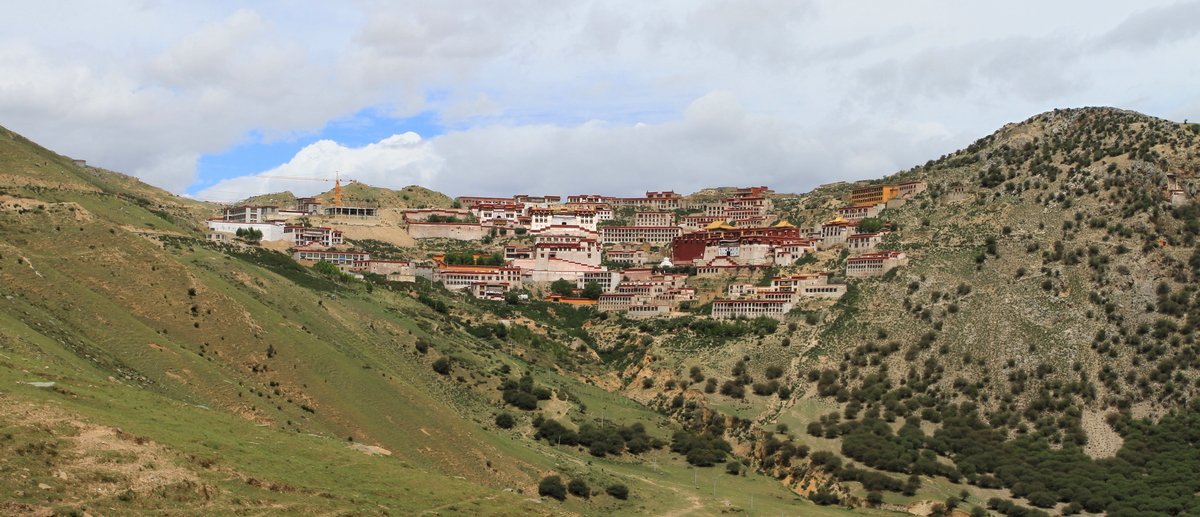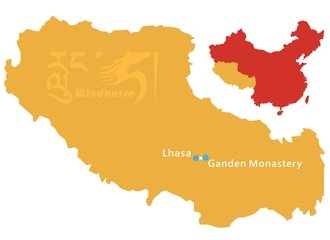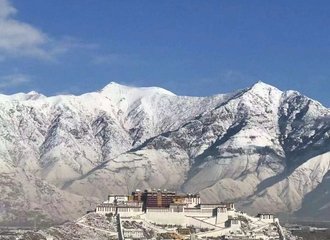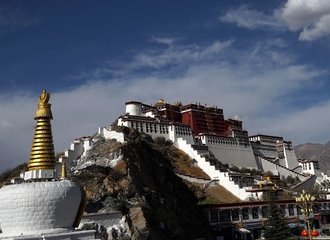Chinese travel phrases and guides
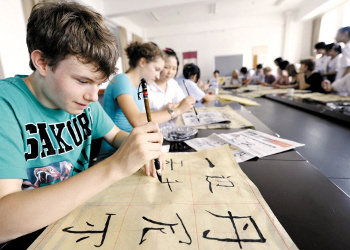
- Clients say: language is the greatest barrier preventing them from connecting with local Chinese.
This Survival Chinese is battle-tested and provided to help any travelers navigate their way to China.
Clients that learn some basic Chinese before coming to China often enjoy their trip more.
This page about the language in China is divided into 2 parts.
- The first part will teach you some basic Chinese which are relative to greeting, looking for a hotel, food, shopping, and transportation, etc.
- In the second part, you will learn how to pronounce Chinese and some common body language in China.
Related tours
Survival Chinese
1. Greeting
- Hello. - 你好(nǐ hǎo)
- How are you? - 你好吗?(nǐ hǎo ma)
- Goodbye. - 再见(zài jiàn)
- Thank you. - 谢谢(xiè xiè)
- You're welcome. - 不客气(bú kèqì)
- Excuse me, ... - 请问, ...(qǐng wèn)
- My name is ... - 我叫...(wǒ jiào)
- What is your name? - 你叫什么名字?(nǐ jiào shénme míngzì)
- I am sorry. - 对不起. (duì bì qǐ)
- Wait a moment. - 等一下. (děng yíxià)
2. Language Difficulties
- Do you speak English? - 你会说英文吗? (nǐ huì shuō yīngyǔ ma?)
- I cannot speak Chinese very well. - 我不怎么会说中文. (wǒ bù zěnme huì shuō zhōngwén)
- How to say ... in Mandarin? - ...中文怎么说? (...zhōngwén zěnme shuō)
- What does ... mean? - ...是什么意思? (... shì shénme yìsi?)
- I understand. - 我听得懂 (wǒ tīngde dǒng)
- I don't understand. - 我听不懂 (wǒ tīngbù dǒng)
- Please write it down. - 请写下来 (qǐng xiěxiàlai)
3. Emergencies and Health
- Help! - 救命! (jiù mìng)
- Can you help me please? - 你能不能帮我个忙? (nǐ néng bùnéng bāngwǒ gì máng)
- Call ... - 请叫... (qǐng jiào)
- a doctor - 医生 (yīshēng)
- the police - 警察 (jǐngchá)
- I am lost, I would like to go to ... - 我迷路了, 我想去... (wǒ mílù le, wǒ xiǎng qù ...)
- I am sick. - 我病了. (wǒ shēngbìngle)
- It hurts here. - 这里疼. (zhèlǐ téng)
- I need a doctor. - 我得看医生. (wǒ děi kàn yīshēng)
- I am... - 我有... (wǒ yǒu)
- asthmatic. - 哮喘病 (xiāochuǎn bìng)
- diabetic. - 糖尿病 (tángniàobìng)
- epileptic. - 癫痫病 (diānxián bìng)
- headache. - 头疼 (tóuténg)
- diarrhoea - 拉肚子 (lādùzi)
- I am allergic to... - 我对...过敏 (wǒ duì... guòmǐn)
- antibiotics. - 抗生素 (kàngshēngsù)
- aspirin - 阿司匹林 (Ā sī pī lín)
- nuts - 果仁 (guǒ rén)
- penicillin. - 青霉素 (qīngméisù)
- MSG (monoso-dium glutamate). - 味精 (wèijīng)
- peanuts. - 花生 (huāshēng)
- seafood. - 海鲜 (hǎixiān)
- pollen. - 花粉 (huāfěn)
- egg. - 鸡蛋 (Jīdàn)
4. Accommodation
- I am looking for a ... - 我想要找... (wǒ xiǎngyào zhǎo)
- hotel - 旅店 (lǚdiàn)
- youth hostel - 青年旅舍 (qīngnián lǔshè)
- camping ground - 露营地 (lùyíngdì)
- Where can I find a cheap hotel? - 哪儿能找到便宜的旅店? (nǎr néng zhǎodào piáyì de lǔdiàn)
- Do you have a room available? - 你们有房间吗? (nǐmen yǒu fángjiān ma)
- I'd like (a) ... - 我想要 ...
- single room. - 一间单人房 (yìjiān dānrén fáng)
- double room. - 一间双人房 (yìjiān shuāngrén fáng)
- deluxe suite. - 豪华套间 (háohuá tàojiān)
- bed. - 一个床位 (yígè chuángwèi)
- How much is it ...? - ...多少钱? (duōshǎo qián)
- per night - 每天晚上 (měitiān wǎnshàng)
- per person - 每个人 (měigè rén)
- May I have a hotel namecard? - 有没有旅店的名片? (yǒu méiyǒu lǚdiàn de míngpiàn)
- I'm/We're leaving today. - 我/我们今天离开. (wǒ/wǒmen jīntiān líkāi)
5. Shopping, Bargaining and Food
- I'd like to buy... - 我想买... (wǒ xiǎng mǎi)
- How much is it? - 多少钱? (duòshǎo qiǎn)
- That's too expensive! - 太贵了! (tài guì le)
- Would you please lower the price a little bit? - 便宜一点吧. (piányi yìdiǎn ba)
- No, thanks! - 不要,谢谢! (búyào, xièxiè)
- Do you accept ...? - ... 收不收? (shōu bùshōu)
- creadit card - 信用卡? (xìnyòng kǎ)
- travellers cheques - 旅行支票 (lǔxíng zhīpiào)
- I would like to have ... - 我想要... (wǒ xiǎng yào)
- water - 水 (shuǐ)
- cold water - 冰水 (bīng shuǐ)
- ice cubes - 冰块 (bīng kuài)
- cafee - 咖啡 (kāfēi)
- beer - 啤酒 (píjiǔ)
- tea - 茶 (chá)
- wine - 红酒 (hóngjiǔ)
- I will have this. - 我要这个. (wǒ yào zhège)
- This is not what I ordered. - 这不是我点的.
- Please bring me some... - 请再给我一点... (qǐng zài gěi wǒ yīdiǎn)
- Waiter/Waitress! - 服务员! (fúwùyuán)
- Could I have the bill? - 请给我账单. (qǐng gěi wǒ zhàngdān)
- The bill is not right. - 账单不对. (zhàngdān bùduì)
- I am full. - 我饱了. (wǒ bǎole)
- I am hungry. - 我饿了. (wǒ èle)
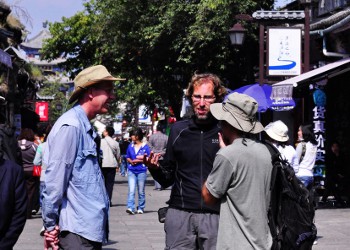
- 6. Directions
- Where is (the)... - ...在哪? (Zài nǎ)
- Could you show me (on the map)? - 你能不能(在地图上)指给我看? (nǐ néng bùnéng (zài dìtú shàng) zhǐ gěi wǒ kàn)
- Go straignt ahead. - 一直走. (yīzhí zǒu)
- Turn left. - 左转. (zuǒ zhuǎn)
- Turn right. - 右转. (yòu zhuǎn)
- at the next corner. - 在下一个拐角. (zàixià yīgè guǎijiǎo)
- at the traffic lights. - 在红绿灯. (zài hónglǜdēng)
- Excuse me, where is the nearest... - 请问,最近的..在哪儿? (qǐngwèn, zuìjìn de.. Zài nǎ'er)
- I am looking for a/the .. - 我在找 ... (wǒ zài zhǎo)
- bank. - 银行 (yínháng)
- automatic teller machine. - 自动取款机. (zìdòng qǔkuǎn jī)
- Bank of China. - 中国银行. (zhōngguó yínháng)
- foreign exchange office - 外汇兑换处 (wàihuì duìhuàn chǔ)
- chemist/pharmacy - 药店. (yàodiàn)
- hospital. - 医院. (yīyuàn)
- ... embassy. - ...大使馆 (dàshǐ guǎn)
- police station. - 警察局. (jǐngchá jú)
- post office - 邮局 (yóujú)
- public toilet. - 公共厕所. (gōnggòng cèsuǒ)
- telephone. - 电话. (diànhuà)
- Where can I get online? - 我在哪儿可以上网?(wǒ zài nǎ'er kěyǐ shàngwǎng)
7. Transportation
- airport. - 飞机场. (fēijī chǎng)
- long-distance bus station - 长途汽车站. (chángtú qìchē zhàn)
- subway station. - 地铁站. (dìtiě zhàn)
- train station. - 火车站. (huǒchē zhàn)
- What time does ... leave/arrive? - ...几点开/到? (jǐ diǎn kāi/dào)
- I'd like a... - 我要一张 .. (wǒ yào yī zhāng)
- one way ticket - 单程票. (dānchéng piào)
- return ticket. - 来回票. (láihuí piào)
- 1st class ticket. - 头等舱. (tóuděng cāng)
- 2nd class ticket. - 二等舱. (èr děng cāng)
- hard-seat. - 硬座. (yìngzuò)
- soft-seat. - 软座. (ruǎn zuò)
- hard-sleeper. - 硬卧. (yìngwò)
- soft-sleeper. - 软卧. (ruǎnwò)
- The train has been cancelled/delayed. - 火车取消了/推迟了. (huǒchē qǔxiāole/tuīchíle)
- I want to go to... - 我要去... (wǒ yào qù)
- I'd like to hire a car. - 我要租一辆车. (wǒ yào zū yī liàng chē)
- How much is it per day? - 一天多少钱? (yītiān duōshǎo qián)
- How much is the deposit? - 押金多少钱? (yājīn duōshǎo qián)
- Can I park here? - 这能停车吗?(zhè néng tíngchē ma)
How to Say Numbers in Chinese
| Number | Chinese | Pinyin | Numer | Chinese | Pinyin |
| 0 | 零 | líng | 12 | 十二 | shí èr |
| 1 | 一 | yī | 20 | 二十 | èr shí |
| 2 | 二 | èr | 21 | 二十一 | èr shí yī |
| 3 | 三 | sān | 100 | 一百 | yì bǎi |
| 4 | 四 | sì | 101 | 一百零一 | yī bǎi líng yī |
| 5 | 五 | wǔ | 110 | 一百一 | yī bǎi yī |
| 6 | 六 | liù | 120 | 一百二 | yī bǎr èr |
| 7 | 七 | qī | 200 | 两百 | liǎng bǎi |
| 8 | 八 | bā | 1,000 | 一千 | yì qiān |
| 9 | 九 | jiǔ | 10,000 | 一万 | yí wàn |
| 10 | 十 | shí | 100,000 | 十万 | shí wàn |
| 11 | 十一 | shíyī |
Time and Dates
- now - 现在 (xiànzài)
- today - 今天 (jīntiān)
- tomorrow - 明天 (míngtiān)
- yesterday - 昨天 (zuótiān)
- in the morning - 早上 (zǎoshang)
- in the afternoon - 下午 (xiàwǔ)
- in the evening - 晚上 (wǎnshàng)
- weekend - 周末 (zhōumò)
- Monday - 星期一 (xīngqí yī)
- Tuesday - 星期二 (xīngqí'èr)
- Wednesday - 星期三 (xīngqí sān)
- Thursday - 星期四 (xīngqí sì)
- Friday - 星期五 (xīngqí wǔ)
- Saturday - 星期六 (xīngqí liù)
- Sunday - 星期天 (xīngqí tiān)
How to Pronounce Chinese?
Tones
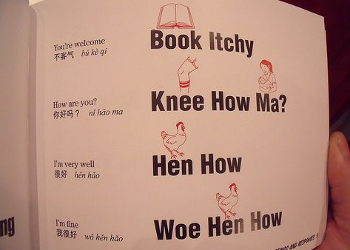
Dislike Engligh, Chinese is a tonal language, which means that every syllable in the language is pronounced with a different tone. The meaning can be totally different if you pronounce a syllable with the wrong tone.
Chinese people use Pinyin to define the tone of every syllable, so how to recognize Pinyin is very important for every foreigners who study Chinese.
Let's start practise with the vowel "a". There are 4 tones used in Mandarine. the first tone, ā, is high and neutral. The second tone, á, goes from middle to high, as if you were asking a question. The third tone, ǎ, goes from middle to low to high, as if stretching out a question. Finally, the fourth tone à goes from high to low, as if you were answering a question. There is also a neutral tone, a, which is unmarked and, of course, neutral in tone.
Here are some examples of how tone can affect meaning: liū (to skate), liú (to flow), liǔ (willow), liù (six). An example of a neutral tone is ma, which is a Chinese particle that goes at the end of a sentence to indicate that it is a question, as in Nǐ hǎo ma? (How are you?)
Although this may seem difficult, pronunciation and recognition of the tones will eventually come naturally with time and practice.
Pinyin
Chinese pinyin are made up of ‘initials’ and ‘finals’, Let's take the word 四 (sì, means four in English.) as an example. sì is made up of the initial ‘s’ and the final ‘i’.
Although Chinese is a tonal language, there are actually only a small number of ‘pronunciations’ in the language, in other words, there are less new sounds to learn than with other languages.
Many of the Pinyin have the similar pronunciations with English. However, there are a few which pronounced very differently from English:
| The Initials which pronounced differently from English | |
| Q | Similar to the ‘ch’ in cheese. |
| C | Similar to the ‘ts’ in rats |
| R | Similar to the ‘s’ in leisure |
| X | Similar to ‘sy’ |
| Z | Similar to the ‘ds’ in roads |
| Zh | Similar ‘j’ in jam, but with the tongue curled back slightly |
| Vowels are pronounced as detailed below: | |
| A | Like the a in rather in American English |
| Ai | Like the i in high |
| Ao | Like the o in cow |
| E | Like the e in errr… |
| Ei | Like the a in hay |
| I | Like the ee in Lee |
| Ian | Like ‘Yen’ |
| Ie | Like ‘Yeah’ |
| O | Like the "o" in for |
| Ou | Like "Oh" |
| U | Like the "u" in flute |
| Ui | Like "Way" |
| Uo | Runs u and o together, u-o, sounds like wo |
| Yu | Pucker your lips as if to whistle and say ‘Yee’, sounds like Y and the German ‘ü’ |
| Ü | Like the German ‘ü’ |
Gesture Use in China
Gestures are frequently used in China. Below are some common body languages in China
- Sometime you will find the Chinese standard of personal distance closer. Try not to step back as this may be perceived as unfriendly.
- The "thumbs-up" sign has a tradition as an indication of excellent. Another way to indicate excellence is to gentle pull your earlobe between your thumb and index finger.
- To call someone, hold your palm down and wave your fingers towards your body.
- Holding one's hand up near the face and slightly waving means no, or it can also be a mild rebuke.
- Feet are considered dirty by Chinese. Avoid placing your feet on a table or desk. It is also impolite to point one's feet at another person
- Shaking your fist at someone indicates anger.
- When nervous or embarrassed, Chinese women may smile or laugh nervously and cover their mouths with their hands.

